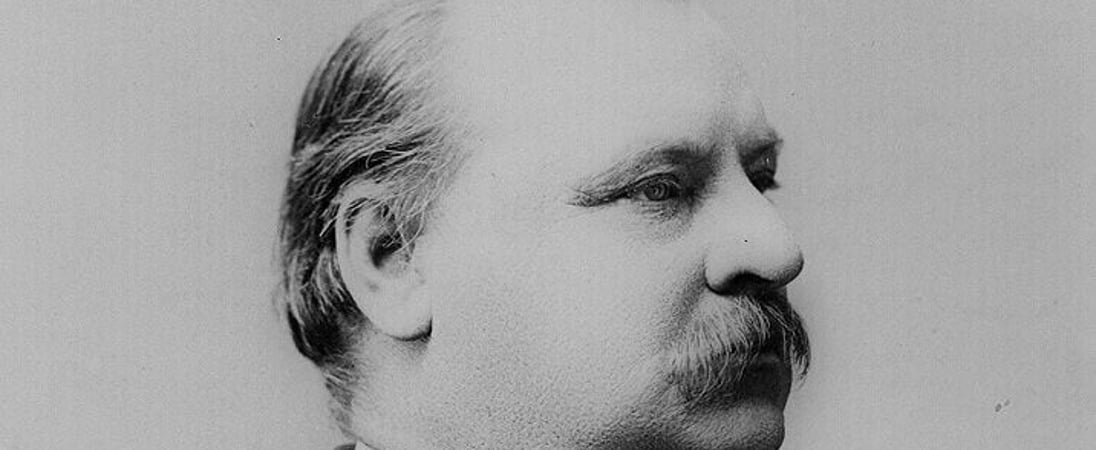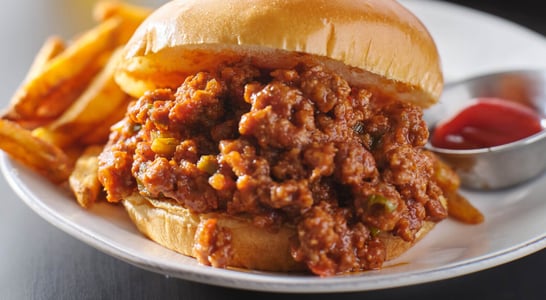
Grover Cleveland's birthday
Grover Cleveland was born in Caldwell, New Jersey, on March 18, 1837. He quickly rose to prominence, first as Mayor of Buffalo and then as Governor of New York, fighting corruption at every step.
In 1885, he became the 22nd President of the United States, known for his honesty and integrity. Cleveland married Frances Folsom in a White House ceremony, a unique event for a president. He served two non-consecutive terms, making him the only president to do so.
Despite facing criticism for his approach to certain social issues, his fiscal conservatism and policy of non-intervention in foreign affairs marked his presidency.
After leaving office, Cleveland retired to New Jersey, where he stayed active until his death in 1908.
Grover Cleveland’s Early Life and Education
Grover Cleveland was born on March 18, 1837, as the fifth of nine children. A Presbyterian minister, Richard Cleveland, led his family, moving frequently across New York State before settling in Clinton.
At sixteen, Cleveland faced tragedy when his father died, forcing him to quit his college aspirations to support his family.
Without a college education, Cleveland moved to Buffalo, New York. There, he started working as a clerk and also studied law part-time.
His determination paid off, and at twenty-one, he was admitted to the bar in 1858. These early years built the foundation for his political career, showcasing his commitment to public service and legal skills.
Cleveland also enjoyed a vibrant social life. Known affectionately as “Big Steve” due to his size, he enjoyed hunting, fishing, and frequenting restaurant saloons with friends.
His lifestyle was that of a typical 19th-century American man, relishing the company of his peers and the simple pleasures of life. His early lifestyle ambitions balanced enjoyment with ambition and integrity, qualities that later highlighted his presidency.
Grover Cleveland’s Legacy of Public Service and Reform
Grover Cleveland rose from a Buffalo lawyer to U.S. President through dedication and public service. He started his political career by winning the Erie County Sheriff election, where he established a justice-focused reputation.
As Buffalo’s Mayor and New York’s Governor, he tirelessly battled corruption, gaining national fame and carving the path to the presidency.
He wielded his veto power against excessive legislation, like the Dependent Pension Bill and Texas Seed Bill, showcasing his fiscal conservatism and commitment to accountability. His administration reclaimed 81 million acres of land from railroad investors, highlighting his dedication to public land preservation.
Cleveland appointed four U.S. Supreme Court justices, enhancing judicial independence and integrity. He navigated the nation through the Panic of 1893, stopping gold reserve depletion.
Despite conservative social issue stances, his presidency profoundly impacted the nation. He strengthened executive power, using executive privilege and vetoes to balance legislative and executive branches.
Cleveland’s presidency left a legacy of honesty, integrity, and reform, emphasizing fiscal responsibility, judicial integrity, and careful executive power use. His contributions to public service and governance remain significant and valued, though he’s not ranked among the top U.S. Presidents.
Interesting Facts About Grover Cleveland
Grover’s Birth Name: Grover Cleveland’s first name was actually Stephen. He preferred to use his middle name as an adult.
Distant Relative of Cleveland City’s Namesake: Although not raised in Ohio, Cleveland was a distant relative of the person after whom the city of Cleveland was named.
Hefty President: Known as “Big Steve,” Cleveland was the second-heaviest president, weighing in at 275 pounds. His lifestyle included beer drinking and cigar smoking.
Early Career in Teaching: Before entering law, Cleveland was a teacher at the New York Institute for the Blind in Manhattan.
Popular Vote Winner: Although Cleveland lost the presidency in 1888 due to the Electoral College, he won the popular vote.
Populist Party’s Role: The Populist Party’s participation in the 1892 election helped Cleveland secure his second term.
Executed Convicts: As Sheriff of Erie County, Cleveland personally carried out executions to avoid paying a substitute, showcasing his frugality.
Also on this date...
National Sloppy Joe Day
This classic sandwich will have you licking your fingers! The tangy sauce mixed with savory meat on a soft bun is a crowd-pleaser.
Global Recycling Day
From trash to treasure, give your waste a new lease on life! Contribute to a better future with the power of recycling.
National Biodiesel Day
Fueling the future, this eco-friendly energy source gives cars a cleaner ride, making the planet and wallets smile.
National Black Pudding Day
Savoring blood sausage connects taste buds to rich culinary traditions, blending savory notes that captivate discerning palates.




